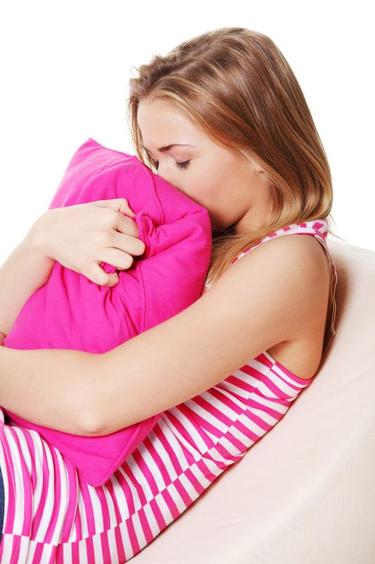|
Your 15-year-old daughter has been in her room more than usual lately… spending more time in the bathroom… moody and irritable. You may think that this is all part of the ‘terrible teens’. And you may be right as so many new experiences occur during adolescence, which in turn creates really strong feelings. The good times are A-M-A-Z-I-N-G but when things don’t work out, it can feel like the world is crashing down around them. Adolescents cope with these life experiences in various ways, some helpful and others may not be so helpful and even harmful. They tend to be closer and feel more comfortable with their friends at this time rather than family members, so talking (or texting… a lot!) about every detail of the day with their friends is common and a great way to cope. Others may write in a diary, focus on their hobbies or interests, listen to music etc. These are all really helpful and positive ways that young people can surf the waves of being an adolescent. What about the unhelpful and harmful ways of coping that are still quite common such as drinking excessive alcohol, smoking cigarettes, substance misuse, withdrawing from social groups, overeating/under-eating or getting involved in multiple or harmful intimate relationships? Fortunately, parents tend to clue in on these behaviours fairly quickly and then take appropriate action to help their child. Then there is deliberate self-harm (DSH) as a way of coping. Other than that vague scenario that was described at the very beginning, there may be no other indicators noticed by parents that their child is physically hurting themselves, which can include cutting or burning skin, poisoning and/or banging their head. Parents may notice their child wearing clothing inappropriate for the weather (e.g., long sleeves/jumpers in summer) but there could be a variety of reasons for this and a parents’ first thought won’t tend to be concern that their child is self harming (understandably). Parents may also notice sharp objects like razor blades hidden away in the child’s room. This is more of a clear sign for parents but doesn’t usually happen since DSH is done in a very private, secretive manner. Parents tend to find out that their child is physically harming themselves by their child’s school teacher, wellbeing co-ordinator or counselor, as friends of the person self-harming are the ones who let a caring adult know. One of the reasons why DSH remains to be one of the most misunderstood and stigmatised behaviours is because the range of emotions and responses it can create in those who are confronted with it. When a parent sees their child’s arms, thighs or stomach covered in cuts or burns, it can elicit feelings of shock, fear, panic and confusion. On the other hand, DSH can also be seen as “simply” attention seeking behaviour and brushed off, ignored or even punished. Neither panicked responses, punitive responses or ignoring the behaviour are helpful ways to connect with someone who is engaging in DSH as they often experience intense feelings of guilt and shame after self-harming, and they are actually really trying to cope with something that is highly distressing. Some evidence-based information about DSH:
What do you do if your child is self-harming?
There is help available and you definitely do not have to go through this alone. If there is an immediate significant risk of harm, call 000. Other important contact numbers to have easily accessible: Kid’s Helpline: 1800 55 1800 Lifeline: 13 11 14 Comments are closed.
|
Categories
All
|
Hopscotch & HarmonyAt Hopscotch & Harmony Psychology, you can expect compassionate care and evidence-based guidance on your journey to wellness.
With clinics in Werribee and Belmont, as well as providing online counselling to clients who live throughout Australia, our dedicated team of psychologists and dietitians are committed to providing support to children, teenagers and adults. With a focus on understanding your unique needs, we offer tailored solutions to foster growth and resilience. Trust in our experience and dedication as we work together towards your well-being. Welcome to a place where healing begins and possibilities abound. |
Our services |
Contact usHopscotch & Harmony
Child, Teen and Adult Psychology Our Locations:
WERRIBEE: 1/167-179 Shaws Rd
BELMONT: 92 Roslyn Rd AUSTRALIA-WIDE: Online counselling |
Hopscotch and Harmony respectfully recognise the Aboriginal and Torres Strait Islander people as the first Peoples of the continent now called Australia.
We acknowledge the Bunurong and Wadawurrung people of the Kulin Nation, the traditional owners of the land on which we work, and pay our respects to their Elders, past, present and emerging.
© 2024 Hopscotch and Harmony Pty Ltd


 RSS Feed
RSS Feed
